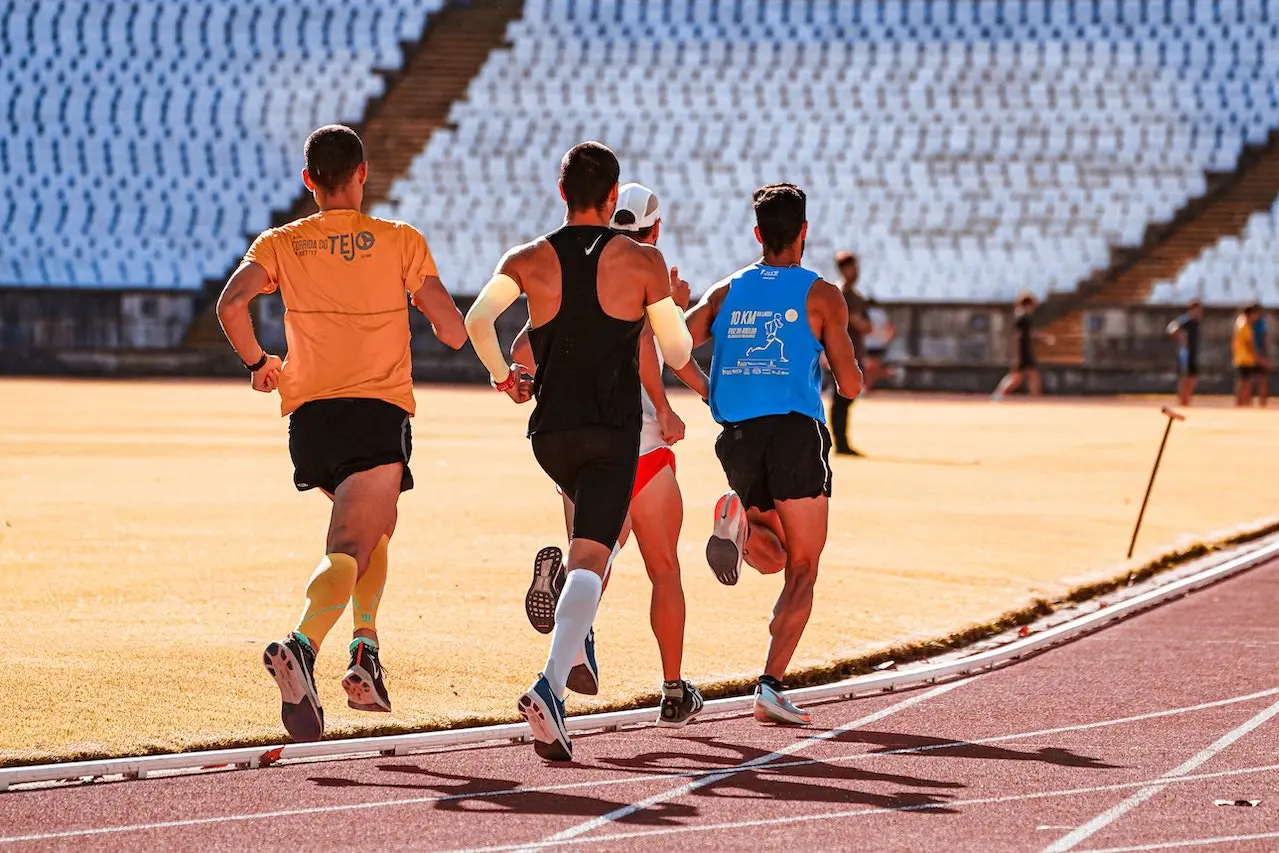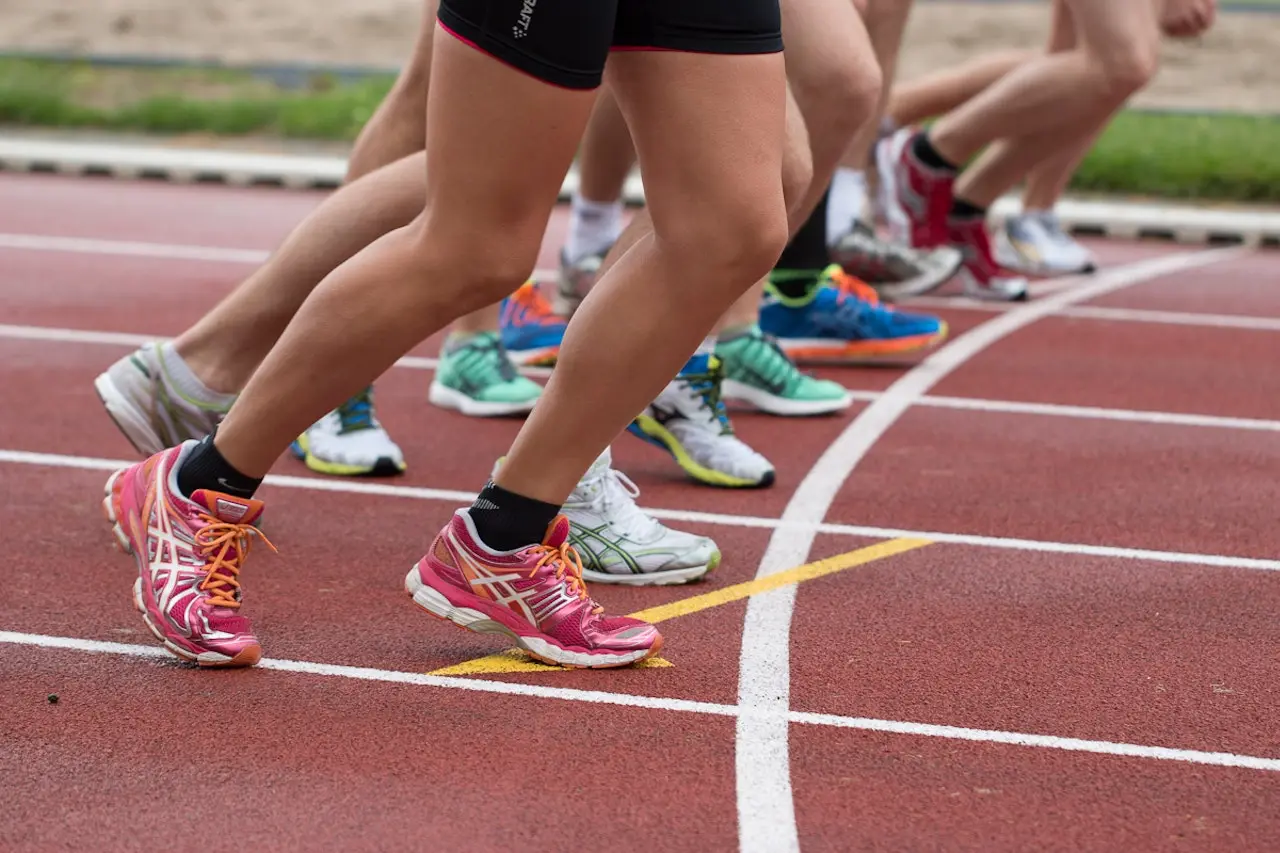How Long Is a 10K Race? How to prepare for this distance: hints and Tips
After knowing “how long is a 10k in miles”, running a 10K event has many positive effects on the body, mind, and spirit. Whether you’re an experienced runner or you’re just getting started, taking part may have a great effect on your general well-being and give an unforgettable experience. Let’s take a closer look at everything.
A 10k race covers a distance of 6.2 miles. When looking at 10k steps in miles these would be equivalent to around 5 miles. Whether you’re aiming for a personal best or simply enjoying the run, understanding how long a 10k is will help you prepare and set realistic goals.
How far is 10k in miles and what kind of distance is it?
10K is classified as a moderate-distance event, falling somewhere between shorter races like 5Ks and longer endurance races like half-marathons and marathons. To be sure of “how far is 10k in miles” we look at some of its comparisons for a better understanding of the distance:
10k steps in miles
A distance of 4-5 miles is about equivalent to 10,000 steps. It is crucial to remember that stride length varies across individuals, impacting the conversion from steps to miles. Some people have shorter or longer strides, resulting in modest differences in distance covered. Nonetheless, 10,000 steps a day is a frequent suggestion for staying active and boosting overall health.
10k run in miles
To answer your question of “how long is a 10k in miles”, a 10K run covers a distance of 6.2 miles. Many runners will find it a difficult but doable objective. A 10K run is a noteworthy accomplishment that demonstrates devotion, endurance, and a commitment to fitness. It draws a wide spectrum of participants, including recreational runners, seasoned athletes, and those looking to achieve personal fitness goals.

7 Benefits of running 10K in miles
Whether you’re an experienced runner or you’re just getting started, taking part in a 10K may have a great effect on your general well-being. Let’s look at a few of the main advantages of running a 10K:
Benefit 1: Cardiovascular Health
Regular 10K runs strengthen the heart and increase its effectiveness, which helps to enhance cardiovascular health. Running speeds up the heartbeat, boosting blood flow and the supply of oxygen and nutrients to the muscles. This can eventually lower blood pressure, minimize the risk of heart disease, and enhance overall cardiovascular health.
Benefit 2: Weight Management
A 10K run can help you lose weight and enhance your body’s composition. Running burns a lot of calories since it is a high-intensity aerobic workout, which helps with weight reduction or maintenance. Additionally, running increases metabolism, increasing calorie burn long after the exercise is finished. Regular 10-kilometer runs can assist you in achieving and maintaining a healthy weight.
Benefit 3: Mental Well-being
Running improves mental health by lowering stress, anxiety, and depressive symptoms. A 10K run increases emotions of happiness and general well-being because endorphins are released throughout the exercise. Running also gives you the chance to relax, sharpen your attention, and increase your self-confidence. The sense of success you get from finishing a 10K race may raise your motivation and boost your self-esteem.
Benefit 4: Increased Bone Strength
Running frequently, even in 10K races, helps to strengthen and increase bone density. Running’s impact forces promote bone remodeling, which over time results in stronger bones. This is especially advantageous for elderly persons as it lowers the risk of osteoporosis and improves bone health.
Benefit 5: Improved Sleep Quality
Running a 10K has a good effect on sleep, which is among its many advantageous effects. Regular exercise, such as jogging, has been demonstrated to increase the efficiency, length, and quality of sleep. Your body temperature increases during physical activity, such as a 10K run, then gradually drops afterward, telling your body it’s time to relax. This can encourage deeper, more restorative sleep and help balance the sleep-wake cycle. Stress and anxiety, which are typical causes of sleep problems, can both be reduced by running.
Benefit 6: Boosted Immune System
Running a 10K race may significantly strengthen your immune system. Running has been found to improve immune function through improved circulation, an increase in white blood cell production, and a decrease in bodily inflammation. Your immune system is aided by these elements in its ability to efficiently fight germs and stave off diseases. Running also activates the lymphatic system, which is in charge of clearing toxins and waste from the body.
Benefit 7: Social Connections
Participating in 10K events enables you to meet others who share your interests. The running community is renowned for its support, encouragement, and friendship. Participating in races and training sessions may provide you with a feeling of community, inspiration, and a chance to meet new people who share your love of running. Making new friends while jogging may improve your general well-being and make the activity more pleasurable.
What is a good 10k time?
When considering “how long is a 10k run”, age, gender, and experience level are just a few of the variables that might affect it. Let’s investigate these variables and offer some information on the typical race times for various categories.
By age
To determine what is the best time for 10 km by age, you need to take into account physiological changes and different levels of fitness. All this can lead to the fact that the optimal time will fluctuate with age. An example of a good 10k time for each age group is given below:
A good 10k time by age
| Age Group | Male | Female |
|---|---|---|
| 20s | 38-42 minutes | 42-46 minutes |
| 30s | 39-43 minutes | 43-47 minutes |
| 40s | 40-44 minutes | 44-48 minutes |
| 50s | 42-46 minutes | 46-50 minutes |
| 60s and above | 45-50 minutes | 50-55 minutes |
- In your 20s and 30s: For males, a competitive time for a 10K in this age group is usually between 35 and 40 minutes, while for women, it’s between 40 and 45 minutes.
- In the 40s and 50s: For this age group, reasonable 10K timings fall between 40 and 45 minutes for men and 45 to 50 minutes for women.
- In your 60s and above: It’s admirable to keep up an active lifestyle and run 10K events at this age. Respectable times are 50 to 55 minutes for men and 55 to 60 minutes for ladies.
By gender
Because of physiologic and performance aspects that are different for males compared to women, men often run the 10K course quicker on average. Instead of just comparing between genders, it’s crucial to concentrate on one’s own growth and development. The average 10K timings are broken down by gender as follows:s
A good 10k time by gender
| Gender | Decent Time Frame |
|---|---|
| Male | 36-45 minutes |
| Femail | 40-45 minutes |
- Men’s 10K times often range from 36 to 55 minutes, depending on their age, degree of fitness, training, and other factors.
- Women generally finish a 10K in between 40 and 60 minutes, taking into account the same variables.
By experience
The best 10K time is mostly dependent on experience. Compared to seasoned athletes, novice runners could have different expectations and aspirations. Following is a breakdown of 10K timings by the degree of experience:
A good 10k time by experience
| Experience Level | Males | Females |
|---|---|---|
| Beginner | 50-60 minutes | 55-65 minutes |
| Intermediate | 45-55 minutes | 50-60 minutes |
| Advanced | 40-45 minutes | 45-55 minutes |
- Beginner runners: Running a 10K is a feat in and of itself for a beginner, regardless of timing. For many novices, finishing in 60 to 70 minutes is a reasonable aim.
- Intermediate runners: For timings around 45–55 minutes for men and 50–60 minutes for women, intermediate runners should strive to train consistently.
- Advanced athletes: Aiming for timings under 40 minutes for men and under 45 minutes for women, advanced athletes should have substantial training and expertise.
Subscribe to Our Running Newsletter!
Get free running tips from renowned professional athletes and discounts from top-notch brands.
Average race times
While age, gender, and experience can all have a substantial impact on typical race timings, it might be useful to think about overall averages. For recreational runners “How long is a 10k run” answers to about 50 to 70 minutes. The data below demonstrates the average 10k times and shows that age is highly connected with the average time for a 10k, with older age groups generally having slower average running speeds.
Average 10K time
| Age | Men (Best Time) | Women (Best Time) |
|---|---|---|
| 0-19 | 46:36 | 1:00:21 |
| 20-29 | 53:31 | 1:02:25 |
| 30-39 | 54:27 | 1:02:19 |
| 40-49 | 55:35 | 1:03:27 |
| 50-59 | 59:00 | 1:07:41 |
| 60-69 | 59:48 | 1:12:01 |
| 70-99 | 1:03:02 | 1:18:57 |
Instead of getting too wrapped up in comparisons, it’s important to concentrate on self-improvement and develop objectives that are specific to your situation. Every runner’s path is unique, and development should be judged against personal accomplishments and milestones.

6 Tips How to prepare for a 10K run
A well-rounded strategy that includes training, pacing techniques, and good nutrition is needed to get ready for a 10K run. Here are some important tips to help you properly prepare, whether it’s your first race or you want to improve your performance:
Tip 1: Establish a Training Plan
- Choose a target for the 10K race. The goal could be to complete the race, meet a time goal, or just take in the experience. To determine where you should start, assess your current level of fitness. Evaluate your capacity for running as well as your general strength.
- Make a training plan that accommodates your lifestyle and allows for progressing your training. Choose a suitable running distance that you can finish without pushing yourself excessively as a starting point.
- To enhance various facets of your performance, incorporate a variety of running sessions into your training schedule. These may consist of: Long runs, Tempo runs, Use interval training to increase your speed and anaerobic fitness by alternating between intervals of hard running and rest.
- Pay heed to your body’s cues and modify your workout schedule as necessary. Rest as necessary, and pay attention to any pain or injury symptoms.
- Warm up your muscles and joints for each run with dynamic stretches and gentle running.
- Incorporate enough rest and recuperation days into your training schedule.
Tip 2: Focus on Pacing
- Choose a speed at which you want to run the 10K event. Start at a pace that is difficult to maintain for the entire distance.
- During your training runs, try out different pacing techniques like negative splits (running the second half faster than the first) or even pacing (keeping a steady pace throughout).
- During practice runs, track your pace with a GPS watch or a running app and adapt as necessary.
Tip 3: Gradually Increase Mileage
- To prevent overuse injuries, gradually increase your weekly distance. Aim for a weekly distance that will allow you to advance without putting an undue amount of stress on your body.
- The 10% rule states that you should only increase your weekly mileage by 10% every week.
- To help your body adapt and lower the chance of overtraining, include rest and recovery weeks in your training schedule.

Tip 4: Focus on Nutrition
- Have a balanced diet that contains healthy fats, carbs, and proteins.
- Give complex carbs, which offer long-lasting energy, a higher priority by choosing whole grains, fruits, vegetables, and legumes.
- Lean proteins, such as those found in chicken, fish, tofu, or lentils, can help your muscles heal and recover.
- Include healthy fats from foods like avocados, nuts, seeds, and olive oil because of their high energy density and anti-inflammatory effects.
- Strategically schedule your meals and snacks around your training runs.
- One to two hours before your run, eat a snack or small meal that is high in carbohydrates to offer quick energy.
- Prioritize post-workout nourishment within 30 to 60 minutes after finishing your run. To help with muscle regeneration and glycogen replacement, go for a balance of carbs and protein.
Tip 5: Hydration is Needed
- Don’t simply drink enough water when you run; do it all day long.
- Regularly sip on water to maintain proper hydration. Although it’s generally advised to drink at least 8 cups (64 ounces) of water each day, each person’s demands are different.
- To start well-hydrated, consume 8–16 ounces of water or a sports drink before your run.
- Drink water or a sports drink periodically while running, particularly during longer training sessions.
- To comfortably carry fluids on your runs, think about utilizing a hydration pack, belt, or portable water bottle.
Tip 6: Consider Your First Race
- If it’s your first 10K race, concentrate more on finishing the distance and having fun than on establishing a precise time target.
- As your confidence and endurance develop, train at a comfortable speed and progressively up the intensity.
- To get helpful advice and support, seek out experienced runners or join a running group.
Frequently Asked Questions About 10K run
How many months does it take to prepare for a 10K run?
Preparation for a 10K run often takes two to three months or eight to twelve weeks. However, the precise period might change based on fitness levels, frequency of training, and goals. To develop endurance and finish a 10K race effectively, you must grow gradually and follow a structured training program.
How fast can a beginner run 10K?
A beginner’s speed might vary, but 60 to 80 minutes would be a reasonable estimate for them to finish their first 10K. In the end, it comes down to things like personal capabilities, degree of fitness, and regularity of training.
The Final Tip on 10K run
A 10K race may be exciting and rewarding for those that participate. You may effectively complete the race in an average 10k time and meet your running objectives by adhering to a well-rounded training plan, dressing appropriately, fueling your body appropriately, and managing your pace throughout the race. Never forget to take pleasure in the trip, acknowledge your successes, and keep pursuing your passion for running. Share your experience of running 10K or address any questions on this topic in the comments section below.
Also read:
- Benefits of Running in the Morning
- Sub 2 Hour Half Marathon
- Are Converse Good for Running
- Average Running Speed
- 7 Minute Mile
- Running at Night vs Morning
- Does Running Tone Your Legs
- Best Beach Running Shoes
- 100 Mile Training Plan
References:
- Biomechanical Factors Contributing to Marathon Race Success // Springer Link: https://link.springer.com/article/10.2165/00007256-200737040-00038
- Medical problems of marathon runners // ScienceDirect: https://www.sciencedirect.com/science/article/abs/pii/S0735675706000404
- Exercise, nutrition and immune function // Taylor & Francis: https://www.tandfonline.com/doi/abs/10.1080/0264041031000140590
- Effects of age on marathon finishing time among male amateur runners in Stockholm Marathon 1979–2014// ScienceDirect: https://www.sciencedirect.com/science/article/pii/S2095254615000435
- Average times by age and sex // MedicalNewsToday: https://www.medicalnewstoday.com/articles/average-10k-time#averages
- Physical and training characteristics of
- top-class marathon runners // Faculty of Sport Science ( Medicine & Science in Sports & Exercise): https://paulogentil.com/pdf/Physical%20and%20training%20characteristics%20of%20top-class%20marathon%20runners.pdf
- The impact of a long training run on muscle damage and running economy in runners training for a marathon // ScienceDirect: https://www.sciencedirect.com/science/article/pii/S1728869X12000354
- Nutrition for Ultramarathon Running: Trail, Track, and Road // Human Kinetics Journals: https://journals.humankinetics.com/view/journals/ijsnem/29/2/article-p130.xml
- Influence of Hydration on Physiological Function and Performance During Trail Running in the Heat // Journal of Athletic Training: https://meridian.allenpress.com/jat/article/45/2/147/111103/Influence-of-Hydration-on-Physiological-Function
If you have any questions or suggestions, you can contact us via email – [email protected]






